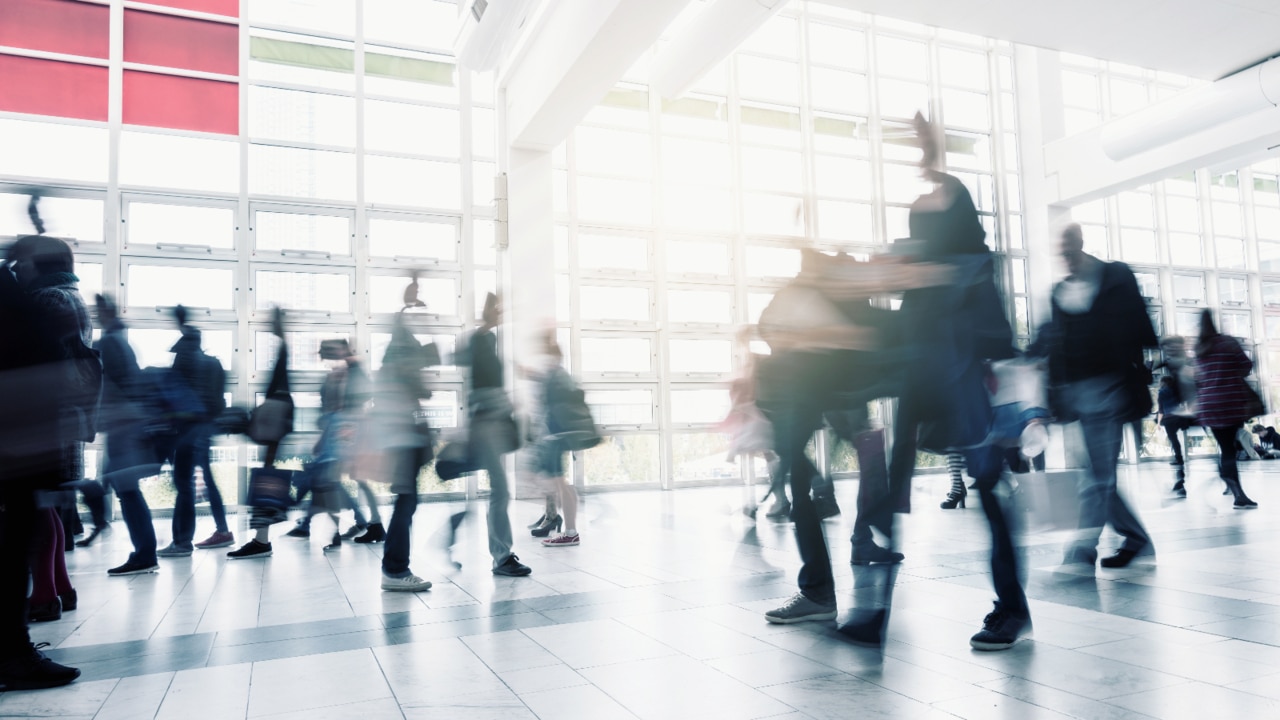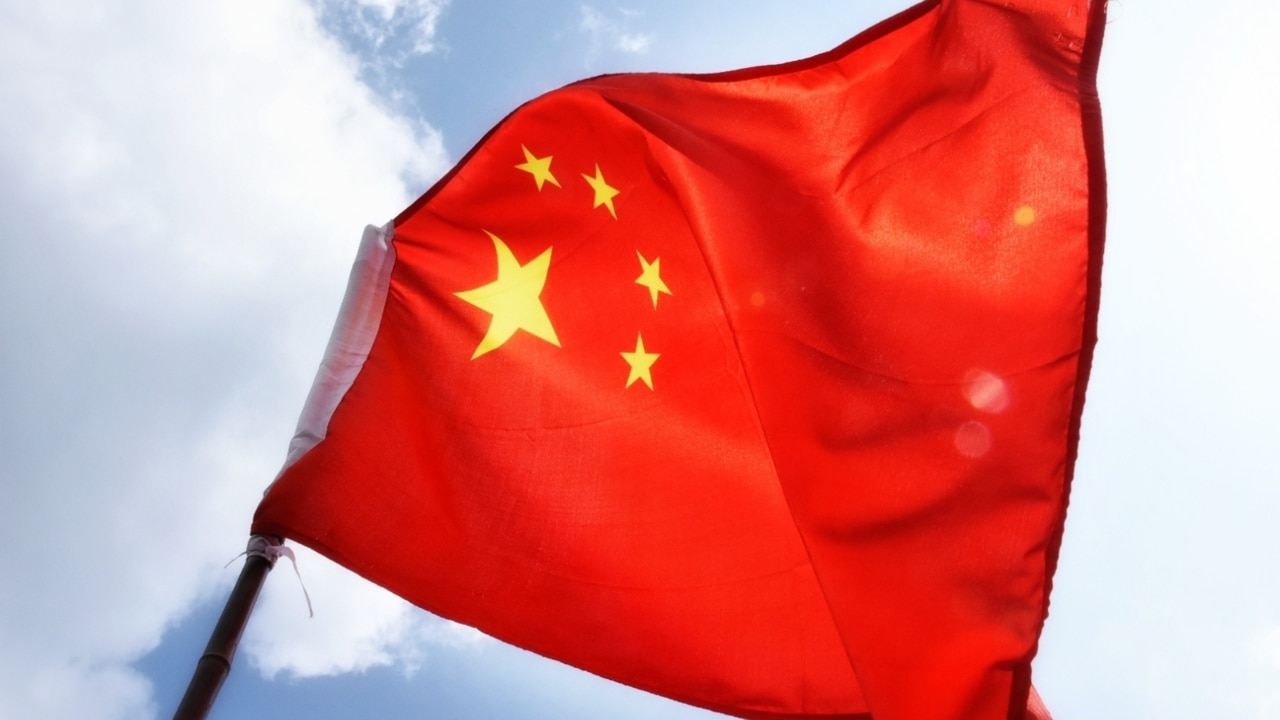Jim Chalmers, business warn China’s Covid-19 wave ‘biggest risk to growth’
Australia faces major supply chain disruptions, with Treasurer, business leaders labelling Chinese outbreak a growth risk.

Australia’s economy faces major supply chain disruptions “across the board” from the explosion in Chinese Covid-19 infections, with Jim Chalmers and business leaders labelling the outbreak in China one of the biggest risks to growth in 2023.
Concerns were also being raised over how the Reserve Bank would view the spiralling Chinese case numbers, as leading economist Chris Richardson questioned whether it would be able to “look through” any temporary supply-side shocks in future interest rate decisions.
AMP chief economist Shane Oliver said the retail and manufacturing sectors would be the most impacted by the unfolding supply chain issues, and warned the economic impact in Australia could be similar to earlier in the pandemic. “It is probably pretty similar to what Australia saw last year with the Omicron wave,” Dr Oliver said.
But he said the disruptions would not be as bad as the first year of the pandemic, and China’s scrapping of the zero-Covid policy would lead to better economic outcomes later this year.
“There will be disruption and people in China will be out of the workforce for several days but it won’t be lengthy lockdowns where people are (out of the workforce) for two or three months,” Dr Oliver said.
“It is going to have an impact but it may not be as severe as the alternative, which would be for China continuing locking down indefinitely.”
The warnings came as it was revealed chief medical officer Paul Kelly warned Heath Minister Mark Butler against imposing restrictions on Chinese travellers.
In health advice released on Monday night, dated January 1, Professor Kelly says Australians’ level of immunity from Covid meant restrictions were unnecessary from a health point of view. “I do not believe that there is sufficient public health rationale to impose any restriction or additional requirements on travellers from China,” the advice reads.

Despite this, Mr Butler announced on Sunday that all Chinese travellers arriving in Australia from January 5 would need to show evidence of a negative test for Covid.
Retailers said the spike in Chinese Covid cases would exacerbate existing delays in some products and compound difficulties from acute labour shortages, while the building sector flagged problems sourcing glass and aluminium products.
With the government having already started work on the May budget, Treasurer Jim Chalmers said China’s management of the Covid wave would be a key challenge to Australia’s economic outlook, along with the war in Ukraine pushing up energy prices.
Dr Chalmers said the economic challenge for the government was “building our buffers against another global downturn” but warned Australia would not be immune to the global challenges.
“The Covid wave in China is already having a substantial impact on supply chains, and we expect that to get more difficult before it eases,” Dr Chalmers said. “When you’ve got a Covid wave like they’re seeing in China, when they’ve had until quite recently a zero-Covid approach to managing the pandemic, then that has obvious consequences for the Chinese workforce, and for supply chains right around the world.”
Dr Chalmers said industries “right across the board” would be impacted by the supply chain disruptions. “We are heavily reliant on Chinese markets and Chinese workforces for a lot of the goods in our economy,” he said. “The flow-on impacts on our economy could be substantial.”
Mr Butler on Monday said the decision to impose restrictions on Chinese travellers was taken out of an abundance of caution and a lack of clear information coming out of China. He said the shake-up was not a return to blanket restrictions on travel and that the government was keen to see the return of Chinese tourists and of international students.
“We don’t want to interrupt that resumption. We’re keen to see it happen. But we also want to make sure that this modest, balanced measure helps us to gather data that’s currently absent from the international community,” Mr Butler told ABC radio.

Australian Chamber of Commerce and Industry chief executive Andrew McKellar said the supply chain hit from the Covid wave in China would be “another factor in what was already a complicated situation”.
“It is something that business has been grappling with now for nearly three years and, of course, it only makes the situation more difficult in the short term,” Mr McKellar said.
However, he said businesses had already been seeking to diversify supply chains given ongoing difficulties with China.
Australian Retailers Association chief executive Paul Zahra said the spike in Covid cases in China was “likely to create some local challenges in the near future”.
“Global supply chain disruptions have been ongoing since the beginning of the pandemic and remain a challenge, especially when compounded by chronic labour shortages,” he said.
“While overall conditions have improved since the height of the pandemic, we continue to experience some delays with getting certain products.”
Housing Industry Association chief economist Tim Reardon said the building sector had experienced “enormous disruptions in the past two years and we got past the worst of it from the middle of 2022”.
“The industry has built a buffer of materials to protect itself from further disruptions … and that may ameliorate some of the initial shock,” he said.
Master Builders Australia chief executive Denita Wawn said builders had felt supply chain pressures throughout the pandemic. “With escalating conditions in China the government must strike the right balance in managing a potential influx of cases and keeping the economy moving to minimise further disruption, which inevitably hurts businesses and their customers,” Ms Wawn said.

Mr Richardson said a supply-side shock in China would be a “bad thing” for the economy.
“If fewer people in China can work, their factories and shipping is all messed up and that gives you two things you don’t want – it makes prices go up and production go down,” he said.
Mr Richardson warned the spiralling case numbers in China could be taken into account by the Reserve Bank when it made its next interest rates decision, but suggested this would be unwise.
“The bank has thus far shown it is equally likely to get its baseball bat out if it sees inflation driven by supply shocks. It’s doing that at the same rate as if it’s being driven by demand,” he said.
“Ultimately it will be temporary, assuming you don’t get new Covid variants that are nasty in ways they are currently not.”
Mr Richardson said the economic consequences for Australia were “not terribly scary, all things considered”.
With business raising concerns about Covid testing requirements for Chinese travellers, Dr Chalmers said he was “not especially” concerned about retaliation from China. “I think every country makes its own decisions about how it manages this pandemic,” he said. “And what we’ve tried to do since we came to office is listen to the expert advice, try to strike the right balance, to pay attention to what’s happening around the world and to come up with the right decisions for Australia.”







To join the conversation, please log in. Don't have an account? Register
Join the conversation, you are commenting as Logout